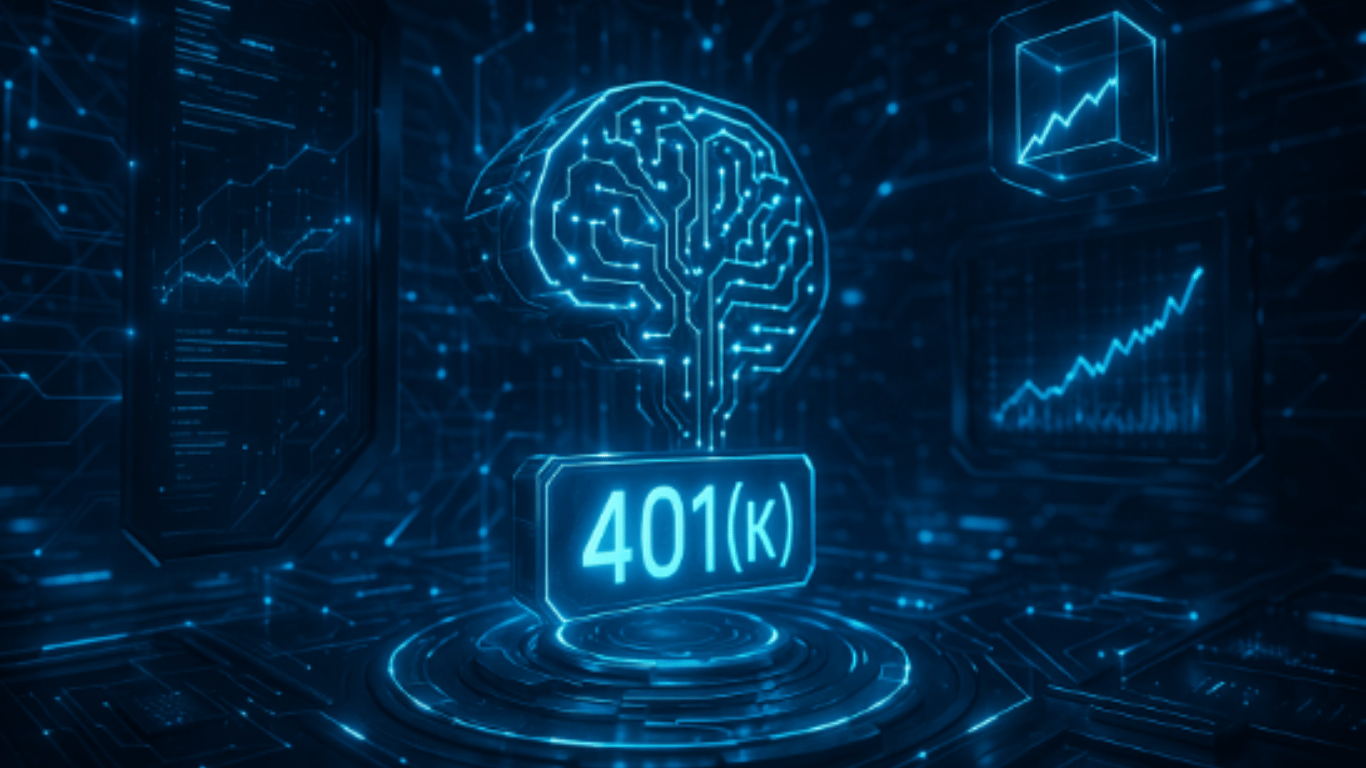Discover top fintech news and events!
Subscribe to FinTech Weekly's newsletter
Read by executives at JP Morgan, Coinbase, Blackrock, Klarna and more
Artificial intelligence is reshaping financial services by shifting retirement planning from static models to dynamic, data-driven decisions. Instead of relying on broad assumptions about risk tolerance or age brackets, advanced algorithms now interpret individual income patterns, spending habits and long-term goals to create highly personalized strategies.
This evolution is especially critical in volatile markets, where traditional approaches fail to provide stability or confidence. For fintech professionals, the real opportunity lies in how AI-powered 401(k) optimization enhances efficiency and financial wellness by streamlining investment decisions and anticipating future needs. It empowers employees with adaptive, real-time support that positions their retirement savings as a proactive benefit rather than a static account.
AI-Powered Data Analysis for Personalized Retirement Plans
AI analyzes participants' financial lives in ways traditional models cannot. By ingesting and interpreting data points such as income, spending patterns, contribution rates and debt levels, advanced algorithms create detailed financial profiles that reflect the realities of each saver.
Natural language processing and machine learning models also uncover subtle patterns in behavior, like irregular contribution cycles or lifestyle changes that may influence long-term savings potential. What once required labor-intensive manual assessment is now achievable with speed and accuracy, thanks to the reduced coding and data processing costs that have made machine learning and text mining viable and cost-effective alternatives to outdated approaches.
The contrast between static allocation strategies is striking. Traditional 401(k) models rely heavily on broad categories like age and risk tolerance. They rarely account for dynamic changes in a participant’s career, health or financial priorities. Still, these plans provide a solid foundation, allowing employees to reduce current taxable income through payroll deductions and defer taxes until withdrawal.
AI builds on that baseline by introducing adaptability. It optimizes real-time contributions, rebalances portfolios to suit current market conditions and aligns strategies with personalized goals. AI doesn't replace the fundamental advantages of traditional plans, but enhances them with precision and forward-looking intelligence that keeps retirement savings on track.
Predicting Future Needs With Advanced Modeling
Predictive analytics enables more accurate forecasts of income needs, health care expenses and inflation risks that can erode savings over time. With 59% of Americans reporting they have invested in a retirement savings plan, the pressure to ensure those funds last is greater than ever. AI-powered models incorporate external data such as market volatility, macroeconomic conditions and longevity trends to create forward-looking strategies beyond static projections.
Scenario modeling and stress testing strengthen this approach by revealing how portfolios might perform under various conditions, from prolonged market downturns to sudden health care cost surges. This capability means delivering more resilient, adaptive retirement plans that build participant confidence and provide a financial roadmap designed to withstand uncertainty.
Automating Investment Decisions With AI
AI introduces real-time portfolio rebalancing, tax-loss harvesting and contribution optimization to keep strategies aligned with market conditions and participant goals. Unlike traditional methods that rely on periodic reviews, AI improves accuracy and adapts dynamically to volatility, which makes investment management more robust and efficient.
This level of algorithmic decision-making surpasses the one-size-fits-all approach of target-date funds. It also outpaces the reactive nature of most robo-advisors, offering a more intelligent and adaptive framework for long-term growth.
Beyond managing allocations, AI can deliver personalized nudges — like reminders to increase contributions after a salary raise or alerts about underutilized employer matches — that encourage employees to make smarter decisions. These tools represent a shift toward proactive financial wellness solutions that optimize returns and strengthen participant engagement and confidence.
Ethical and Governance Considerations
AI-driven retirement planning brings advantages but raises serious ethical and governance considerations that fintech professionals cannot overlook. Algorithmic bias has the potential to skew investment decisions, creating uneven outcomes that may undermine fiduciary responsibility and fairness. Transparency and explainability are equally critical, as employees and regulators expect to understand how recommendations are made and whether they serve participants' best interests.
Data privacy and cybersecurity risks make the challenge even greater, with 1.35 billion Americans affected by breaches, leakage and exposure in 2024. Addressing these issues requires strong oversight frameworks, strict regulatory compliance and human-in-the-loop governance that blends the precision of AI with the accountability of human judgment. Embedding these safeguards fosters trust, ensuring compliance and protecting the credibility of AI-powered 401(k) solutions.
Strategic Implications for Fintech Professionals
For fintech companies, integrating AI into 401(k) platforms presents a powerful opportunity to stand out in a crowded marketplace by offering smarter, more adaptive retirement solutions. Beyond optimizing portfolios, AI can serve as a differentiator by delivering personalized insights that enhance financial wellness and create measurable value for employees and plan sponsors.
Building trust will be critical to scaling these innovations, which makes collaboration with employers, regulators and participants essential for establishing clear standards of transparency and accountability. The future of retirement planning is likely to merge AI with behavioral finance and environmental, social and governance considerations. It can create solutions that optimize returns and align with participants’ values and long-term life goals.
Harnessing AI to Build Smarter and More Trustworthy Retirement Plans
AI can elevate 401(k) plans into tools that actively drive financial wellness, resilience and confidence for participants. Fintech leaders must embrace innovation while embedding strong ethics, governance and oversight to ensure trust and compliance. Rather than replacing human expertise, AI should be an augmentation that empowers financial professionals to deliver more adaptive retirement strategies.












